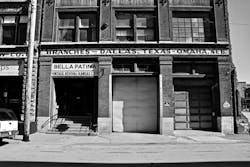Rust Belt an 'Ecosystem of Innovation'
Pittsburgh, Baltimore, Kansas City, Madison, Wisc., and other Rust Belt beacons are being reborn as smart, sustainable cities bustling with job markets, offering a model for other smaller communities to replicate.
Manufacturing hubs of U.S. yesteryear have long been considered "ghost towns" once the manufacturing moved out and took jobs with them. Today, cities like Detroit and Pittsburgh, with growing jobs and industry and attracting young professionals and homebuyers, are the testing ground for a reshaping of what American cities can be and do, in what Fast Company calls an "ecosystem for innovation" that other small, struggling communities may be able to model themselves after.
Getting cities to adapt and be “smarter” isn’t easy, but it’s necessary. Cities are complex, living ecosystems that can only thrive if they look toward the future, rather than getting dragged down by the past. At the same time, cities can’t truly transform if they’re only focused on inviting new talent and new economies without preparing workers from the old economies on how to foster and thrive. What will happen when 50 percent of U.S. jobs are lost to automation? How will cities prepare then?
